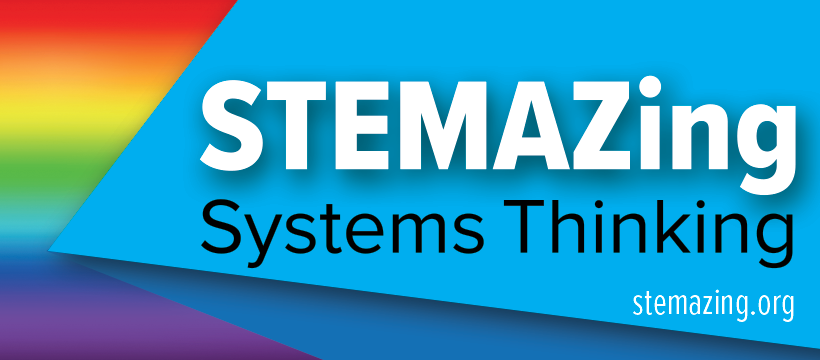High School
Binary #MicDropMath Cards
There are five versions of the Binary #MicDropMath Cards below. To perform the Binary #MicDropMath, print out page one of the binary number cards. (NOTE: You only need to print these double-sided to include page two on the backside if you are using them with younger children who can’t yet add numbers but can count…
Read MoreBinary #MicDropMath Build Your Own Cards
This lesson will demonstrate to students how to make the binary #MicDropMath cards. A common question when engaging students with the Binary #MicDropMath is: “Why are those numbers on the cards?” In this lesson, they will start with blank cards and put the numbers on the cards so they understand the numbers are not random.…
Read MoreThe Wonder of Science
The Wonder of Science was created to support the next generation of science teachers. The website aggregates resources developed by Paul Andersen and other science teachers implementing the Next Generation Science Standards* (NGSS).
Read MorePhenomenal GRC Lessons
A collection of vetted, three-dimensional lessons aligned to the Next Generation Science Standards and state standards developed from the Framework for K-12 Science Education.
Read MoreNext Generation Science Storylines
A storyline is a coherent sequence of lessons, in which each step is driven by students’ questions that arise from their interactions with phenomena.
Read MoreM&Ms Are Phenomenal – #SciencingAndEngineering with @TheSTEMAZingPro
Teacher/Learning Coach Guide with Best Practices and Strategies for Engaging Students [Coming Soon!] Notice Phenomenon and Wonder Question Journal If you want to use this resource in Google Classroom, you can find a Google Slides version of the Notice Phenomenon and Wonder Question Journal here: Notice Phenomenon and Wonder Question Journal for Google Classroom…
Read MoreDry Erase Phun – #SciencingAndEngineering with @TheSTEMAZingPro
Teacher/Learning Coach Guide with Best Practices and Strategies for Engaging Students [Coming Soon!] Notice Phenomenon and Wonder Question Journal If you want to use this resource in Google Classroom, you can find a Google Slides version of the Notice Phenomenon and Wonder Question Journal here: Notice Phenomenon and Wonder Question Journal for Google Classroom…
Read MoreHuman Computers – Creative Message Communication
Believe it or not, there is a five-letter word encoded in the cards shown in the image. Start with lessons on the binary number system. Then, learn how computers use parity bits for error detection and correction. Finally, then learn how you can send messages back and forth using cardboard cards or cards with 0…
Read MoreProjectile Popper
Build this Projectile Popper using an empty 32 oz Gatorade bottle, a string, rubber bands, drill (other options), scissors, goggles, bead, ping pong balls, and a box cutter (or knife). (NOTE: Adults should prep the Gatorade bottle by cutting it with the box cutter and drilling the hole in the lid for young children.) Once…
Read MorePool Noodle Rocket
Build this Pool Noodle Rocket using, you guessed it, a pool noodle, duct tape, rubber bands, scissors, cardboard from a cereal box, a sharpened pencil, plastic knife, rocket fin template, ruler, sharpie, string, and a bead. Launch it using your thumb or use a meter stick to launch it and collect data on variables you…
Read More